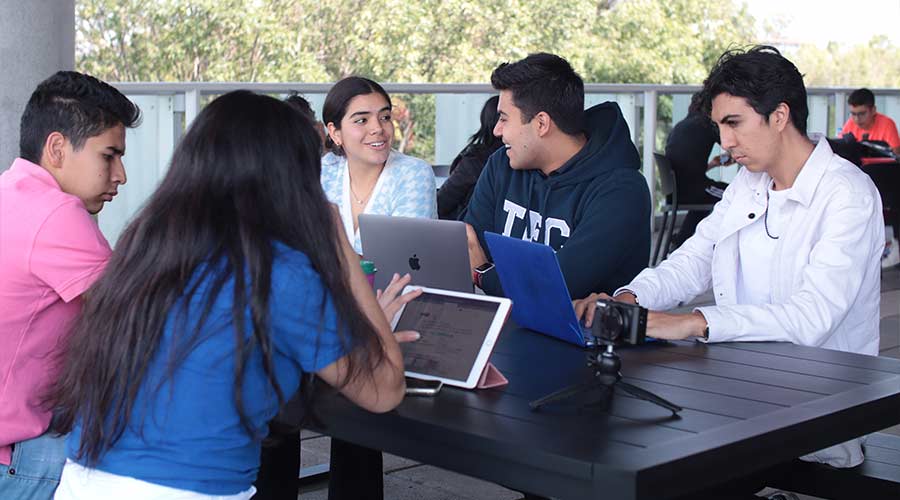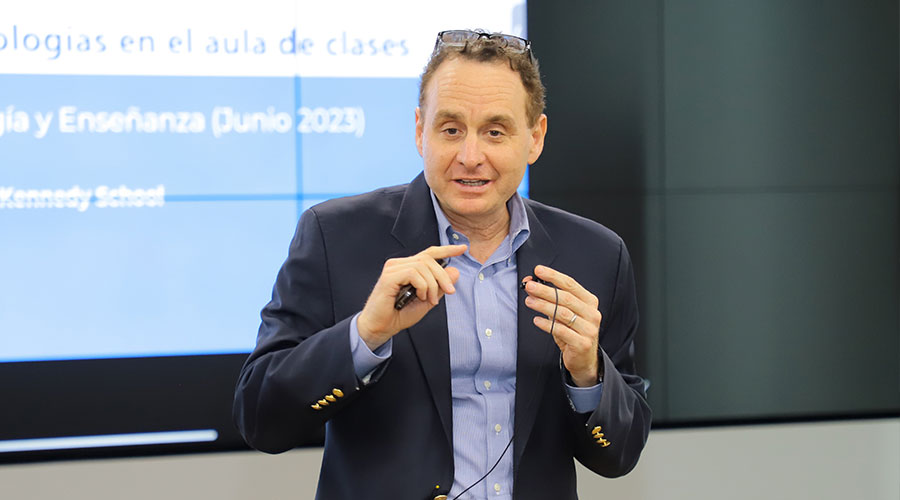According to Harvard Kennedy School professor Dan Levy, one of the everyday challenges faced by professors is that they don’t know how much each student learns during class. This happens because teachers don’t know about the personal learning of each student.
“In an ideal world, we’d know what’s in the mind of each student and we’d realize what they’re learning. This is one goal where technology can help to improve learning in classes.”
Through using technology and thinking about this issue, the Harvard professor shares some practices that will help educators to teach and students to learn more and thus improve their academic performance.
“In an ideal world, we’d know what’s in the mind of each student and we’d realize what they’re learning.”
1.- Technology to improve understanding in class
Levy says that one of the first steps for implementing technology in the classroom is identifying needs and distinguishing between tools that help to understand each student’s individual learning and tools that allow what is happening in the classroom to be integrated collectively.
“The technology that allows us to know what our students are thinking one at a time often gives us a different impression of the classroom to what they’re really thinking,” he says.
This specialist explains that a class can sometimes give the impression of being effective, in terms of understanding the content, thanks to a select group of students leading discussion of the content.
“The problem with this discussion is that we don’t know what the other 40 students who didn’t speak were thinking,” explains the professor.
Making this distinction and identifying the problem can help to choose technology that adapts to students’ learning needs.

2.- Asking invites dialog
In response to the above problem, Professor Dan Levy proposes the polling or survey strategy as a solution.
Polling consists of teachers using an application such as PollLev or Menti to ask the class about a topic presented during the session and students anonymously answering the question.
“Besides knowing how many students answered correctly, this encourages students to participate. If I were to ask the class openly, only a few people would answer,” suggests Levy.
This strategy serves to know which concepts are well understood by each student and enables any doubts to be cleared up without fear of making mistakes, as only the teacher has access to the individual answers.
“The act of answering individually sparks an interest in knowing what the answer is based on how others answered, the teacher will know whether to review the topic or go on to the next question, and this will give rise to discussion between students and teachers,” he adds.
“The technology allows us to know what our students are thinking, giving us an impression of how they really think.”
3.- Teamwork with shared documents
Finally, the Harvard expert suggests implementing the use of collaborative tools such as shared documents to encourage teamwork, start discussion in class, and ensure that everyone participates.
“Sometimes, I’m on a Zoom call and see that a group hasn’t even written their names. The document is a way to monitor that,” he says.
According to the professor, one of the advantages of using shared and collaborative documents is that they enable students to take responsibility for their participation in class during team activities.
“You expect that they can present what they wrote, whereas if you say, ‘Discuss this and we’ll talk about it afterwards,’ who knows if they can. This obliges students to do something because they know that they may be called upon to present after this activity,” he explains.

For this expert, the greatest advantage of these tools is that they are accessible and easy to use by the students, so they don’t require extra effort or training to learn to use them.
“These techniques help us to find out what our students are thinking and not to trust our telepathic powers to tell us,” Levy concludes.
About Dan Levy
Dan Levy is a renowned professor from the John F. Kennedy School of Government at Harvard University.
He is currently a Senior Lecturer in Public Policy and the faculty director of the Public Leadership Credential.
In addition, he teaches courses in quantitative methods, policy analysis, and program evaluation to improve learning and teaching techniques in the classroom.
Over the course of two days, Dan Levy gave a workshop on Technology and Teaching organized by professors at the School of Government and Public Transformation in Mexico City.
ALSO READ:





